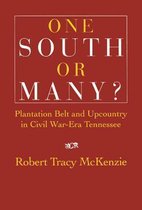A Bahian Counterpoint Sugar, Tobacco, Cassava, and Slavery in the Reconcavo, 1780-1860
Afbeeldingen
Sla de afbeeldingen overArtikel vergelijken
- Engels
- Hardcover
- 9780804726320
- 01 mei 1998
- 300 pagina's
Samenvatting
This is the first study, for any region of colonial or nineteenth-century Brazil, to integrate research on the production and marketing of basic foodstuffs for local needs into an investigation of slavery and export agriculture. It thus forges a link between what have until now been two separate strands of scholarship in the field of Brazilian history, opening new perspectives for understanding how, during more than three centuries, slavery, plantations, and export agriculture shaped social and economic life in Brazil.
This book examines the social-economic history of the region known as the Recôncavo in the province (now state) of Bahia in Northeastern Brazil. In the early nineteenth century, the Recôncavo ranked as one of the oldest and most important slaveholding regions in the Americas and, within Brazil, as a major center of sugar and tobacco production. A Bahian Counterpoint shows that, although often dismissed as peripheral or marginal activities in the literature on Brazil, the production and marketing of foodstuffs for internal consumption played a crucial role in the development of the Recôncavo's slave-based export economy.
The book also systematically compares the use of slave labor, landholding, and agricultural practices in the production of the Recôncavo's three main crops: sugar, tobacco, and cassava. The comparison reveals an agrarian economy where, relying on slave labor, great planters and small farmers alike adapted land use and agricultural practices not only to specific crop requirements, but also to the demands of both overseas and local markets. The adaptations they made created a complex and varied social landscape in a region long thought to be dominated almost exclusively by large plantations. The comparison further reveals striking contrasts between sugar and tobacco. Neither merely another example of export monoculture nor strictly a peasant activity, tobacco farming in the Recôncavo demonstrates that, within slave-based export agriculture, there were alternatives to the plantation.
Both for Brazil and for many other areas of the Americas, A Bahian Counterpoint challenges established arguments about slavery, export agriculture, and the development of an internal economy.
Productspecificaties
Inhoud
- Taal
- en
- Bindwijze
- Hardcover
- Oorspronkelijke releasedatum
- 01 mei 1998
- Aantal pagina's
- 300
- Illustraties
- Nee
Betrokkenen
- Hoofdauteur
- B. J. Barickman
- Tweede Auteur
- B.J. Barickman
- Hoofduitgeverij
- Stanford University Press
Overige kenmerken
- Extra groot lettertype
- Nee
- Product breedte
- 162 mm
- Product hoogte
- 24 mm
- Product lengte
- 235 mm
- Studieboek
- Nee
- Verpakking breedte
- 152 mm
- Verpakking hoogte
- 229 mm
- Verpakking lengte
- 229 mm
- Verpakkingsgewicht
- 612 g
EAN
- EAN
- 9780804726320
Je vindt dit artikel in
- Categorieën
- Taal
- Engels
- Boek, ebook of luisterboek?
- Boek
- Beschikbaarheid
- Leverbaar
- Studieboek of algemeen
- Algemene boeken
Kies gewenste uitvoering
Prijsinformatie en bestellen
De prijs van dit product is 30 euro en 22 cent. De meest getoonde prijs is 76 euro en 99 cent. Je bespaart 61%. Dit is een tweedehands product..
- Bestellen en betalen via bol
- Prijs inclusief verzendkosten, verstuurd door BAY EXPRESS
- 30 dagen bedenktijd en gratis retourneren
Rapporteer dit artikel
Je wilt melding doen van illegale inhoud over dit artikel:
- Ik wil melding doen als klant
- Ik wil melding doen als autoriteit of trusted flagger
- Ik wil melding doen als partner
- Ik wil melding doen als merkhouder
Geen klant, autoriteit, trusted flagger, merkhouder of partner? Gebruik dan onderstaande link om melding te doen.








